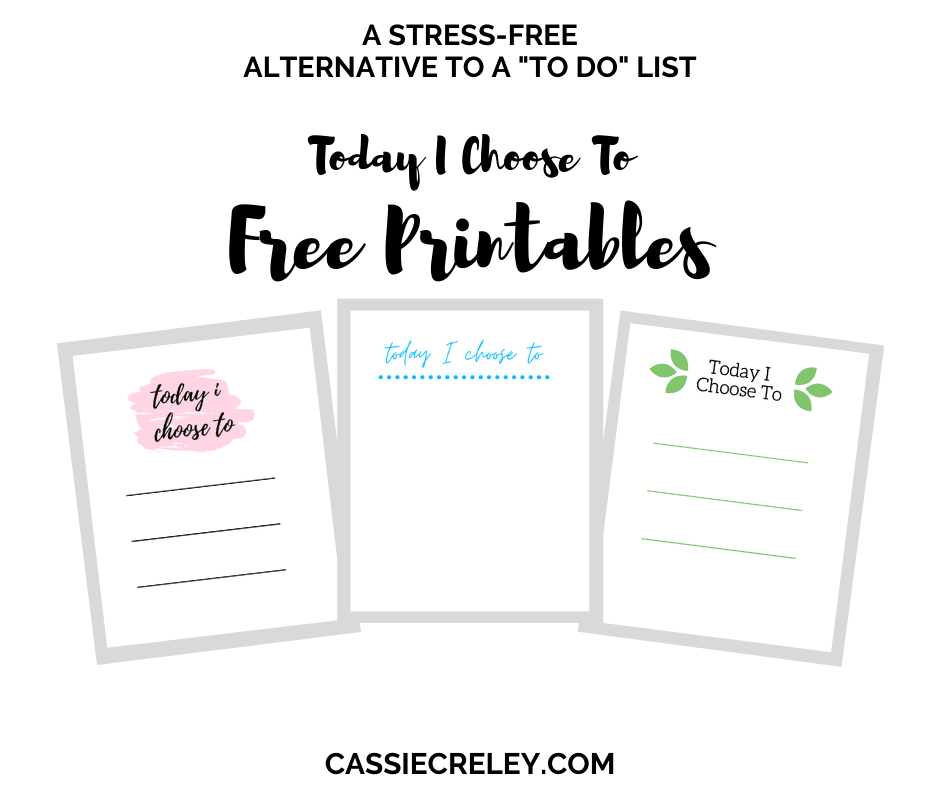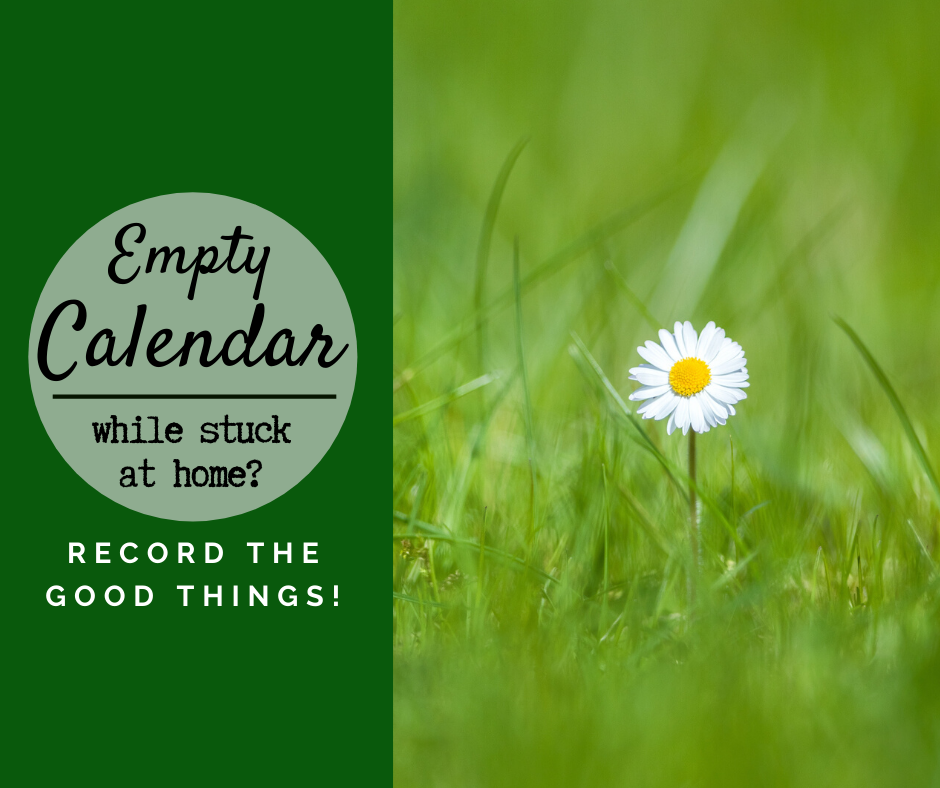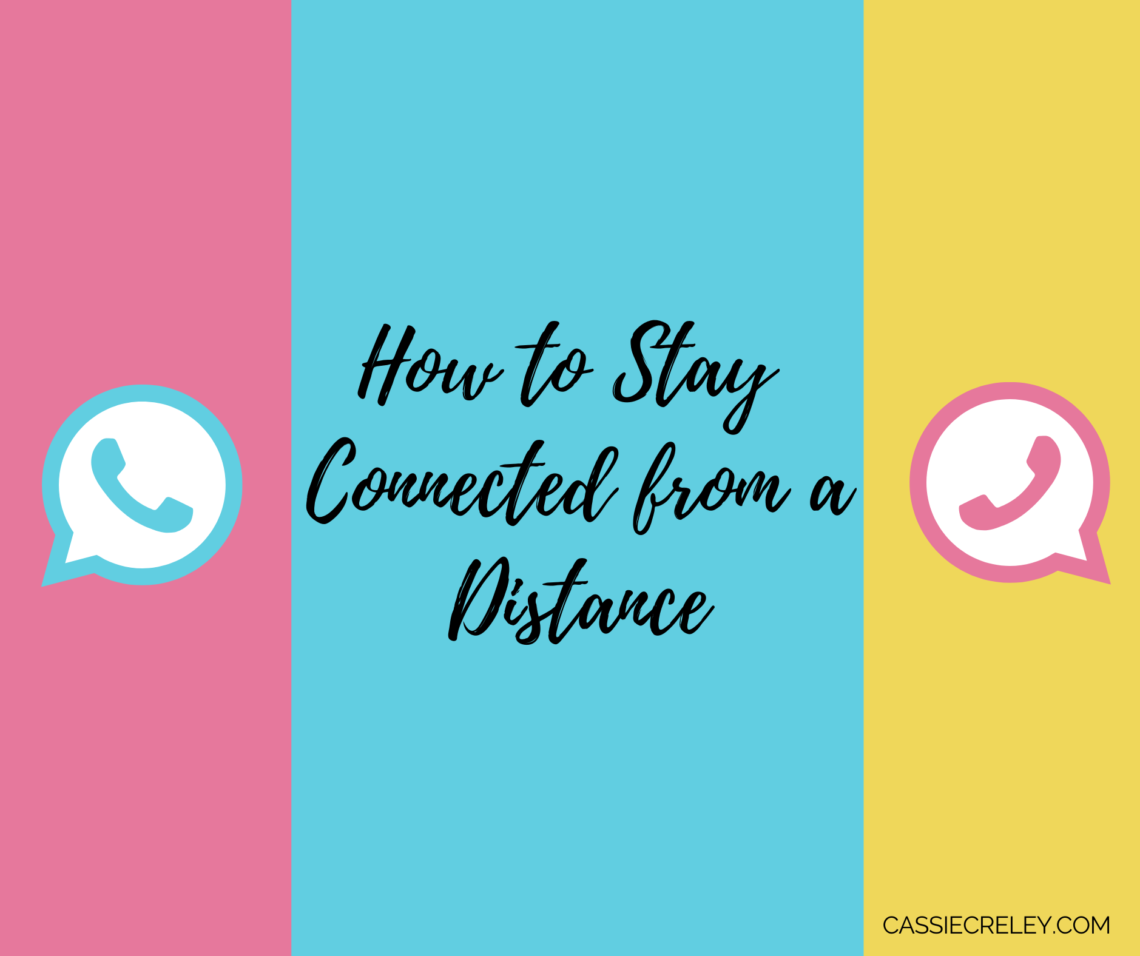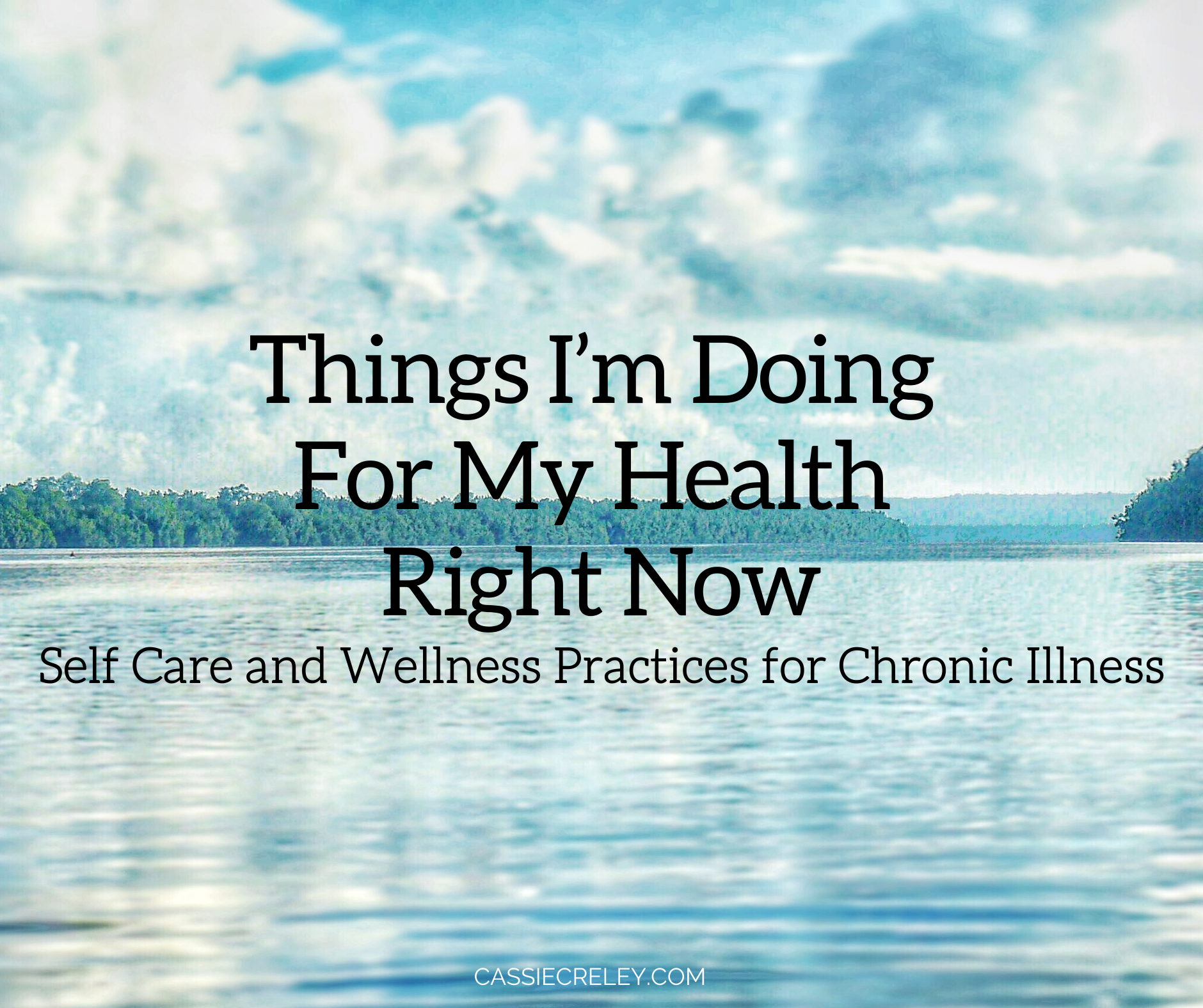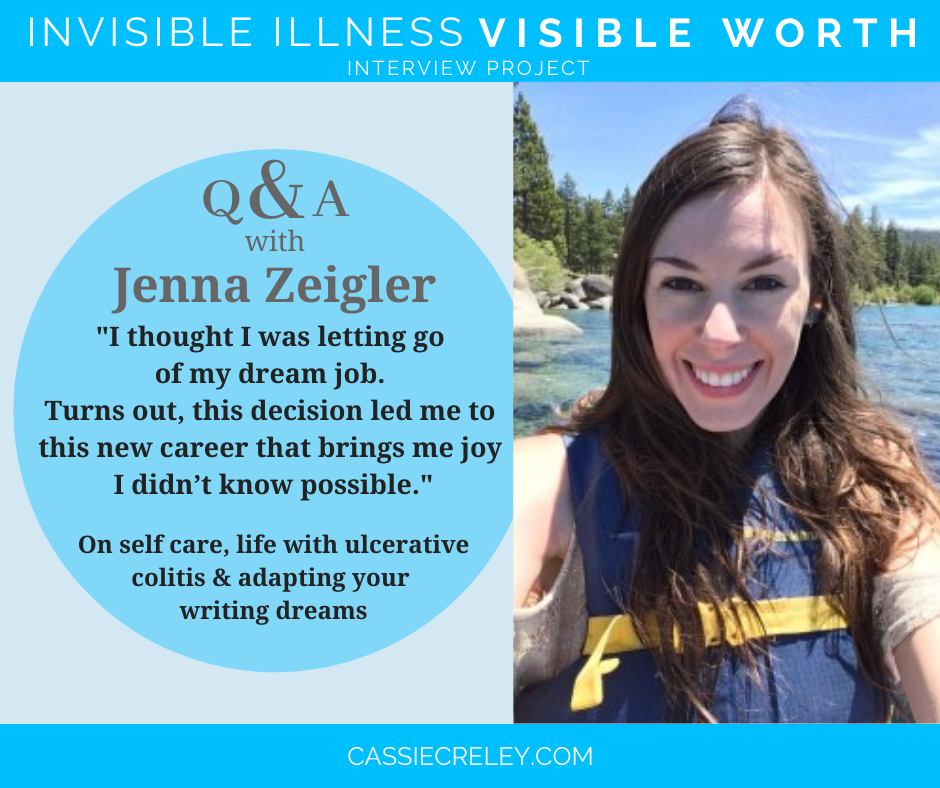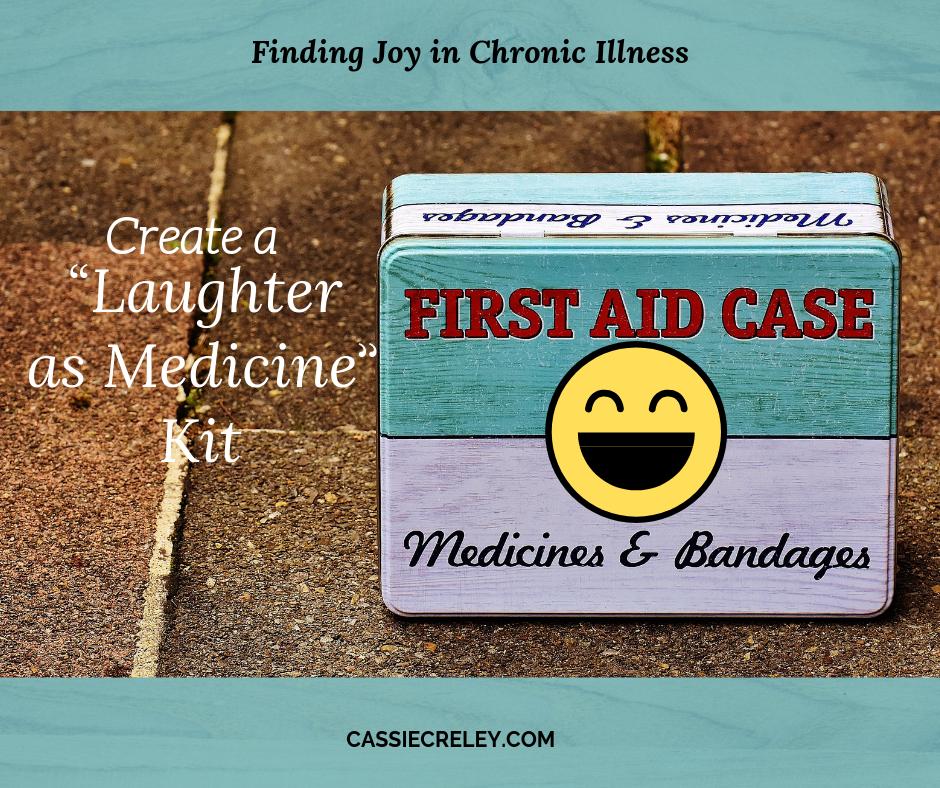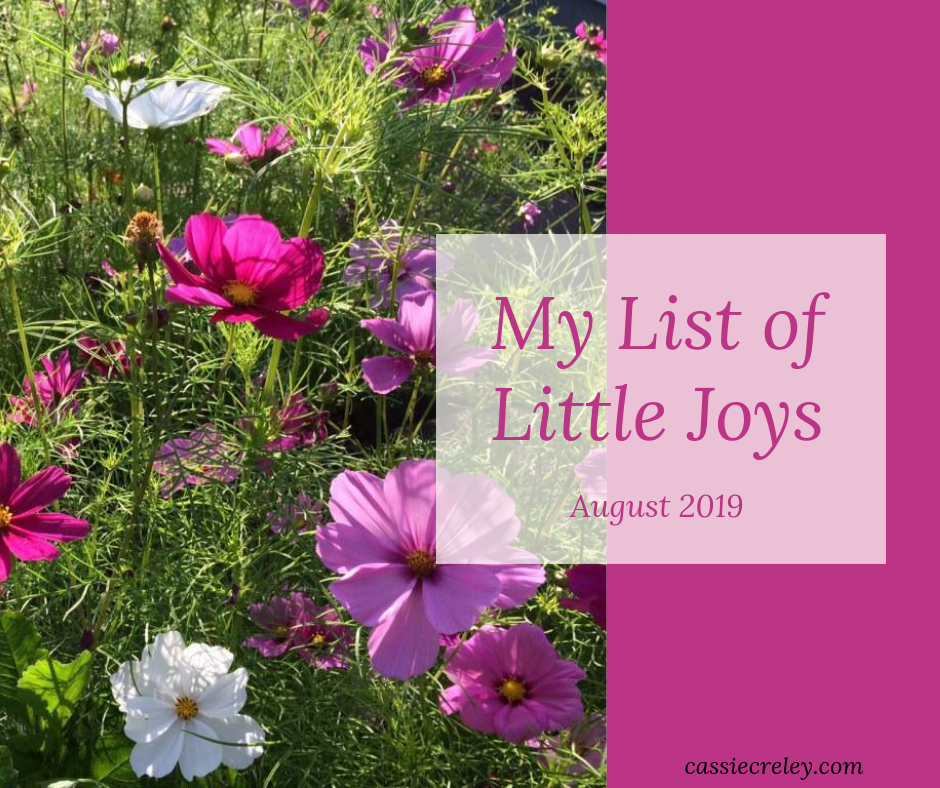-
How “Choosing” Helps on Bad Days + Free Printables
“Today I choose to”—these are powerful words to reframe thinking. I’ve started reminding myself that “I have a choice” to help me get through bad chronic illness days, and today I’m sharing my tips for “choosing” when we feel stuck. Plus, I’ve created three free printables to help you choose what you want to focus on, whether you feel stuck because of chronic illness, being at home because of social distancing during quarantine, or whatever challenges you might be facing.
I’ve found that I can tolerate most things if I feel like I have a choice. In other words, when I reframe my thinking and choose how to respond, I feel more in control and able to cope with a situation, even if that situation is far from ideal.
What got me thinking about this? Not too long ago I was lying in my recliner, where I spend a lot of my time due to dysautonomia, fibromyalgia, ME/CFS (myalgic encephalitis/chronic fatigue syndrome), and other chronic conditions. And I was frustrated because I did not want to be there, just watching TV. My mind was buzzing with all of the things I wished I could be doing. I didn’t want to rest, I wanted to do things!
-
Empty Calendar While Stuck At Home? Record The Good Things!
A lot of us are stuck at home or stuck inside right now, and if you’re like me, facing an empty calendar might make you feel blue. I originally envisioned this post for people who spend most of their time at home due to chronic illness, and I hope this topic will be helpful to even more people while we’re experiencing social distancing and self-quarantine.
While staying at home a lot over the last three years due to my health, I’ve found it helpful to look at my blank calendar as an opportunity—it’s the perfect place to record the good things. After all, we don’t have to be busy to be joyful.
This post will help you brainstorm ways your calendar can help you look forward to the future with a sense of anticipation, and look back on memories with a sense of joy and gratitude.
I know not everyone keeps a physical calendar, but if you keep a calendar on your phone or computer, you can use these tips too. Families can use these tips when using the calendar to keep a schedule and sense of normalcy for kids. You could also use this post as a prompt for bullet journaling if that’s the way you prefer to capture what you’ve been up to lately.
-
How To Stay Connected From A Distance
This post is all about finding creative ways to stay connected while we’re apart. I’ve been planning to write this post for awhile, and because of quarantine and social distancing, now seems more perfect than ever.
I’m sure everyone is aware that these are very unusual times everywhere. In case you’re interested in what’s going on in my corner of the world: I’ve been home since March 5 at my doctor’s advice to protect myself from COVID-19. On March 16, Americans were asked to stay home as much as possible to flatten the curve (all schools in Washington were officially closed that day as well), and March 23 the Washington state governor issued a stay-at-home order.
To everyone who is taking this seriously and protecting those of us with weakened immune systems: THANK YOU. We can do this, and I have some tips.
If there is one good thing in the midst of all this, it’s that people are realizing how challenging it can be to stay connected when you can’t leave your home. As I shared in a Facebook post, oddly enough, I’ve been able to be more social recently because people are free to talk to on the phone and join video calls.
Chronic illness is super isolating, and the chronic illness community has a lot of advice for everyone experiencing this challenge. (For more on what this looks like in day to day life for people with chronic illness, I recommend this article from The Mighty.)
This post is for everyone experiencing this temporary change due to quarantine and social distancing, as well as though of us who are chronically ill and have had to adapt long-term.
-
Things I’m Doing For My Health Right Now
I’m a huge advocate of being proactive when it comes to your health, so I today I’m sharing some of the ways I’m doing this right now.
Lately, I’ve had the feeling that no matter what I do for my health, it feels kind of futile. That’s one of the sucky things about being chronically ill—you can do all the right things, and still be, well, chronically ill. Plus, I’ve been dealing with the cold weather (one of my triggers), health set backs, and—oh joy—new symptoms. It’s frustrating and ironic when your health is one of the things keeping you from being proactive about your health.
Thus, this blog post. I thought it would be helpful to record the ways I can be proactive about my health, and how these actions do help, even if just in a small way.
Some of the items on my list may look a little random, or not the kind of things you would associate with “health.” Most of these things aren’t specific to helping any one health condition, like my dysautonomia, fibromyalgia, asthma, autoimmune disease, ME/CFS, etc. But I’ve been trying to pay attention to what is zapping my energy or causing me stress. Viewing a problem as an opportunity to improve my health helps in two ways: 1) this helps me clarify a goal (less energy output or stress) and 2) this helps motivate me to make positive changes (by reminding me that this is important to my overall wellbeing). This clarity and motivation is enough to break through my brain fog and exhaustion so that I’m able to work on my health.
My hope is that this post will help you take a look at what you’re doing for your own wellness, or inspire you to think of new ways you can include more self care in your life. And when you make that list, I hope your reaction is similar to mine: I might be limited in what I can do for my health right now, but I’m doing the best I can.
-
Q&A with Jenna Ziegler “I thought I was letting go of my dream job. Turns out, this decision led me to this new career that brings me joy I didn’t know possible.”
A few years ago, I was planning to start a writers’ group, but due to my health changing unexpectedly, I was never able to get one up and running. So I was pleasantly surprised when blogging made that happen in a way I didn’t expect. Blogging allows me to connect with other writers, and I get especially excited when those writers love the creative side of writing, like fiction and poetry. That’s one of the reasons I’m thrilled to be able to introduce you to Jenna Ziegler, a chronic illness blogger and aspiring novelist.
Jenna runs the blog The Comical Colon, where she shares her medical journey in a comical light to encourage others to share their unique health journeys. When I found her blog, I immediately sent a link to a friend who was recently diagnosed with colitis because I knew she could benefit from Jenna’s informative and upbeat writing.
When chronic illness threatened her opportunities to have the schooling and career she desired, Jenna found that her health also brought new options for pursuing her love of writing. She’s been blogging since March 2018 and she’s also an aspiring author. Jenna shares about her writing journey (including participating in NaNoWriMo) plus numerous helpful chronic illness resources in this interview.
I hope you’re encouraged by this conversation with Jenna on chronic illness, faith, and perseverance.
-
Getting Rid of Digital Clutter on my Ereader to Feel More Organized
I love finding ways to organize that are manageable with chronic illness.
I’ve been on a slow but steady mini-cleaning spree, and am pretty proud of myself that I’ve checked some items off my to-do list. While I love organizing, my dysautononia, fibromyalgia, and other health conditions make it super exhausting. I wish I could do more, but I’m getting better at pacing myself.
As I wrote about in an earlier post, I’ve found ways to declutter/organize despite limited energy, and it helps me to de-stress. Also, when so many things in my life are out of my control due to my chronic conditions, it helps to be able to have control over my space. When my environment is visually calm and organized, I feel more calm and organized too.
I’ve finished organizing my medicine cabinet and file folder (don’t worry I won’t subject you to a blog post about that!) and when I saw a recent blog post about digital decluttering your e-reader, I was inspired to go through my ebooks as well. This blogger’s goal was to read what she already had. That isn’t my goal (because…libraries!), but her goal did make me want to go through my ebooks, plus it remind me of something I want to try in the future. I’d love to clear out one of my shelves on a bookcase so that it become a designated space just for my unread books. This would make them easier to find—sometimes I forget where I have books squirreled away! A project for when I have a little more energy, and space!
-
Create a Laughter as Medicine Kit
This post is all about ideas for adding more laughter to your life!
While laughter may or may not be the best medicine, it sure can make a difference.
I’ve been compiling a list of things that make me laugh, and it’s turned into a kind of first aid kit for making me feel better. Being intentional about cultivating joy and laughter has been even more important to me since I’ve been dealing with multiple chronic illnesses as well as chronic pain. Maybe you’re dealing with similar health challenges, or just looking for tips to improve your wellbeing. So I’m going to share ideas with you so you can make your own customized laughter kit!
Having a list of funny resources has been helpful because my brain is often fried due to chronic illness (hellooooo brain fog!). Instead of having to hunt around when I need a pick me up, I can use my kit as a jumping off point. (I printed my list off, but you can save it to your phone or wherever makes sense for you.)
Oftentimes, when I need a pick-me-up, my brain is too fried to think “Oh, I should watch or read such-and-such, that always makes me feel happier!” So, that’s why I’m making this list, so I know what tools I have in my laughter-as-medicine kit.
Before we dive into making a laughter-as-medicine kit…how exactly does laughter help?
I think we all know that laughter is a good thing, especially if you’re dealing with chronic illnesses, but did you know it can physically make a difference?
-
My List of Little Joys – August 2019
Here is my latest list of little joys, part of my effort to focus on the things that I am thankful for and to remember all the little moments in life worth celebrating.
Keeping track of little joys has helped me to see that there is more to my reality than just the problems I’m facing. There are lots of reasons to smile, laugh, and enjoy life, even during rough times.
I’ve been recording some of the things that make me grateful as my own spin on gratitude journaling.
I’m glad I’m revisiting this style of post because *usually* summer offers me a little relief from fatigue and pain and symptoms—and unfortunately, that has definitely not been the case this summer. The weather has been so sporadic that I’ve not been able to benefit from consistenly warm days. We’ve had a day or two of balmy weather, then rain, and the rapid changes in weather sends my fibromyalgia, dysautonomia, and asthma into a tailspin.
It’s rough feeling worse when you were anticipating feeling better. I’m just realizing now how much I was banking on having some more time to write and go do things with friends this summer. Now summer is more than halfway gone, and I’m honestly feeling a bit robbed of my favorite season. (Can anyone relate?)
So I’m recording the highlights from the last couple months in a deliberate effort to remind myself that I *have* been able to do fun things this summer. Also, I want to try to focus more on the good.
